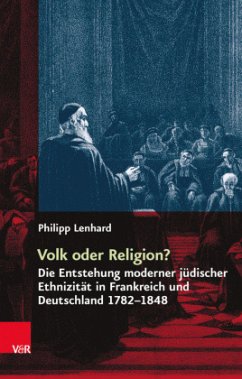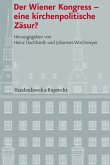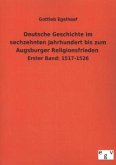When the idea of the nation-state began to prevail in late 18th century Europe, traditional Judaism had to face a fundamental crisis. Centralization of state power and the national homogenization of the state's population implied the abolishment of the Jewish community's autonomy - a 'nation within the nation' was not to be tolerated anymore. Instead of forming a distinct corporate entity, the Jews were summoned to discard every ethnic consciousness and to define themselves solely as a 'community of faith.' While as a result of this development one part of the enlightened Jewish elite tried to transform Judaism into a pure 'religion,' many others radically opposed this reduction and supported ethnic conceptions of Jewishness. However, these ethnically defined forms of Judaism differed in many ways from all pre-modern conceptions of the 'people of Israel.' Although Jewish intellectuals, who put common ancestry and a peculiar Jewish 'national spirit' (Volksgeist) at the center, harked back to traditional ideas, these ideas were blended with contemporary philosophical, anthropological, and religious concepts. This book deals with the emergence of these notions of modern Jewish ethnicity in France and Germany.
Mit der Durchsetzung der Nationalstaatsidee seit dem ausgehenden 18. Jahrhundert geriet die traditionelle jüdische Gemeinschaft in Europa in eine Krise. Die jüdische Gemeindeautonomie wurde sukzessive abgeschafft, die Juden sollten jedes ethnische Bewusstsein ablegen und sich nur noch als "Glaubensgemeinschaft" verstehen. Während ein Teil der aufgeklärten jüdischen Elite daraufhin das Judentum in eine reine "Religion" zu transformieren versuchte, stellten andere dieser Reduktion bewusst ethnische Konzeptionen gegenüber. Die Studie untersucht die Entstehung dieser modernen jüdischen Ethnizität in Frankreich und Deutschland.
Mit der Durchsetzung der Nationalstaatsidee seit dem ausgehenden 18. Jahrhundert geriet die traditionelle jüdische Gemeinschaft in Europa in eine Krise. Die jüdische Gemeindeautonomie wurde sukzessive abgeschafft, die Juden sollten jedes ethnische Bewusstsein ablegen und sich nur noch als "Glaubensgemeinschaft" verstehen. Während ein Teil der aufgeklärten jüdischen Elite daraufhin das Judentum in eine reine "Religion" zu transformieren versuchte, stellten andere dieser Reduktion bewusst ethnische Konzeptionen gegenüber. Die Studie untersucht die Entstehung dieser modernen jüdischen Ethnizität in Frankreich und Deutschland.








